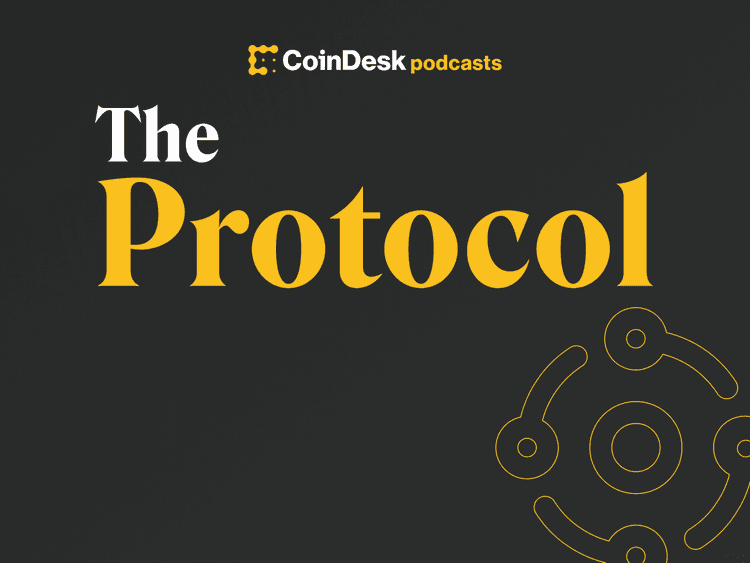Blockchain Fundraising's New Frontier of Node Sales
Node sales are becoming a popular fundraising method in the blockchain industry, where projects sell nodes instead of tokens or equity.
ABOUT
Follow the show here for more.
This installment of "The Protocol," hosts Brad Keoun, the founding editor of The Protocol Newsletter, and tech journalists Sam Kessler and Margaux Nijkerk; who discuss node sales, address poisoning, and the concept of account abstraction on Ethereum. The hosts also touch on the challenges of mainstream adoption of blockchain technology and the lack of standards in token launches.
Takeaways |
- Node sales are becoming a popular fundraising method in the blockchain industry, where projects sell nodes instead of tokens or equity.
- Address poisoning is a type of exploit where a victim is tricked into sending a legitimate transaction to the wrong wallet address.
- Account abstraction is a concept that aims to make crypto wallets on Ethereum easier to use and more versatile.
- The lack of standards in token launches and the challenges of mainstream adoption continue to be issues in the crypto industry. SoFund has a reward system where 20% of the total supply of their token, SOF, will be awarded as rewards to node buyers over the next three years.
- The distribution model for rewards and tokens can be a balancing act between satisfying investors and contributors to the ecosystem.
- Maximal extractable value (MEV) is a problem on the Ethereum blockchain where operators can front-run and extract profits from transactions, causing financial losses.
- Metamask has introduced smart transactions to combat MEV, offering lower fees, transaction transparency, and protection against front running.
- The development of different types of wallets and transaction systems is an ongoing effort to improve user experience and address complex technical challenges in the blockchain industry.
Sign Up forTHE PROTOCOL NEWSLETTER
EPISODE LINKS |
Ethereum Developers Target Ease of Crypto Wallets With 'EIP-3074'
Popular Crypto Wallet MetaMask Rolls Out 'Smart Transactions' to Combat Ethereum Front-Running
The Protocol has been produced and edited by senior producer Michele Musso and our executive producer is Jared Schwartz. Our theme song is “Take Me Back” by Strength To Last.
HOSTS
Margaux Nijkerk reports on the Ethereum protocol and L2s. A graduate of Johns Hopkins and Emory universities, she has a masters in International Affairs & Economics. She holds BTC and ETH above CoinDesk's disclosure threshold of $1,000.

Sam is CoinDesk's deputy managing editor for tech and protocols. His reporting is focused on decentralized technology, infrastructure and governance. Sam holds a computer science degree from Harvard University, where he led the Harvard Political Review. He has a background in the technology industry and owns some ETH and BTC. Sam was part of the team that won a 2023 Gerald Loeb Award for CoinDesk's coverage of Sam Bankman-Fried and the FTX collapse.

Bradley Keoun is CoinDesk's managing editor of tech & protocols, where he oversees a team of reporters covering blockchain technology, and previously ran the global crypto markets team. A two-time Loeb Awards finalist, he previously was chief global finance and economic correspondent for TheStreet and before that worked as an editor and reporter for Bloomberg News in New York and Mexico City, reporting on Wall Street, emerging markets and the energy industry. He started out as a police-beat reporter for the Gainesville Sun in Florida and later worked as a general-assignment reporter for the Chicago Tribune. Originally from Fort Wayne, Indiana, he double-majored in electrical engineering and classical studies as an undergraduate at Duke University and later obtained a master's in journalism from the University of Florida. He is currently based in Austin, Texas, and in his spare time plays guitar, sings in a choir and hikes in the Texas Hill Country. He owns less than $1,000 each of several cryptocurrencies.

EPISODES
The Significance of User-Owned AI and NEAR Protocol's Emphasis on Practical Applications
NEAR’s co-founder Illia Polosukhin shares the need to shift from corporate-owned AI to models that benefit individual...
Jul 8, 2024
Sui as a Global Coordination Layer for Intelligent Assets
Adeniyi Abiodun envisions a long-term goal for Sui to develop a decentralized web stack, leading to a fully decentra...
Jun 28, 2024
The Major Narrative in the Blockchain Space | Interoperability
Sergey Gorbunov on Axelar's Focus on Security and Programmability
Jun 17, 2024
Live from Consensus 2024 | The Financialization of Crypto and the Influence of Narratives
David Schwartz and Robert Leshner share how the convergence of traditional financial markets and on-chain systems pre...
Jun 6, 2024

The Mining Pod
Feb 10, 2025

CoinDesk Podcast Network
The top stories and best shows in the blockchain world, delivered daily from the team at CoinDesk.
Dec 20, 2023

Markets Daily Crypto Roundup
Tune in as CoinDesk runs down daily action in bitcoin markets and some of the most important recent industry development.
Dec 19, 2023

Unchained
Unchained, your no hype resource for all things crypto by former Forbes senior editor Laura Shin, author of The Cryptopians.
Dec 18, 2023
